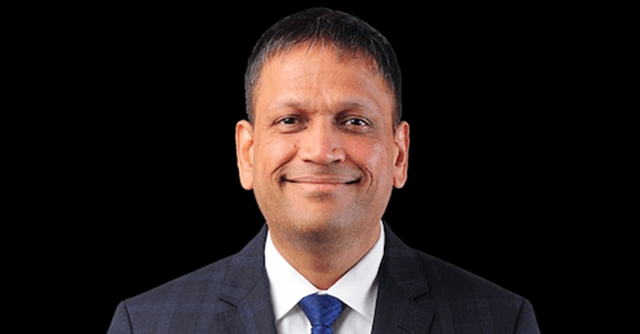
By mid-2024, 100% of our tech workforce to be trained in GenAI: Hexaware CEO R Srikrishna


Global IT services provider Hexaware Technologies is experiencing significant growth opportunities despite the ongoing economic crisis. In an interview with TechCircle, CEO, R Srikrishna, discussed how enterprises can leverage digital technologies to drive business growth. He also shared the company’s plans on emerging technologies such as generative artificial intelligence (AI) as well as the company's growth plans in the near future. Edited excerpts:
How has been the journey from being a publicly listed company to a private firm and from being part of one PE firm to another?
Our philosophy is that a change in ownership does not impact how we operate as a company and what we do right. The focus on our employees has not changed in any material way either due to going from public to private or because of the transition to Carlyle (from Baring PE Asia). It doesn't change the long-term trajectory of what we do because the management, including myself, outlives any ownership cycle. I have been with the company for nine years and have witnessed all these changes during the period. Our view on how to build the business is longer term than specific ownership cycles, and therefore our goals and approach with our clients and employees remain unchanged.
In terms of growth, 2022 was a bit of an aberration driven by various factors, including escalating labor costs and intense attrition, which affected every company, including ours. However, we have already recovered and grown in most areas where we experienced losses last year.
In FY22, the company grew by 28% and crossed ₹9,000 crore in revenue. In the domestic market, we have embarked on a major expansion drive, focusing on emerging cities to tap into their potential and talent pools. We recently launched a delivery centre in Bhopal.
How is Hexaware leveraging digital transformation to drive business growth and adapt to the changing market?
We are undergoing a digital transformation as an enterprise while also helping our customers do the same. We are utilising technologies such as data, machine learning, and artificial intelligence to predict demand and better understand the needs of our customers. For example, in the IT industry with its complex skill requirements, we have developed over 100,000 SKUs to predict demand for each skill in each city and country where we operate, as well as for each customer. Our digital capabilities allow us to effectively address this complex problem. Additionally, we are preparing to launch a virtual presence in the metaverse, further embracing emerging technologies.
In July, Hexaware launched its Generative AI consulting and practice unit for the enterprise. What are your plans around Gen AI for the coming months?
We partnered with Microsoft for this initiative and this partnership is centred on Hexaware's knowledge ecosystem solution 'Tenjin,' which utilises Microsoft Azure's OpenAI Service to create dynamic, scalable, and highly precise knowledge ecosystems using generative AI. Our goal is to have nearly 100% of our tech workforce trained in Chennai. Currently, there are already 11,000 employees in the process of training, with over 3,000 having completed it. By the end of this year, we expect around 20,000 employees to have finished training, and by mid-next year, close to 100% of our tech workforce will be covered.
How do you foresee the biggest opportunities and challenges in the coming year?
You see, 2022 and 2023 have been the years of economic challenges. However, I believe that amidst these challenges, there are opportunities. For example, despite volatile market, we onboarded around 4,500 people in 2022, taking our headcount to more than 28,000 employees. The employee retention rate also jumped from 68% in 2021 to 73% in 2022, though it is still low compared to 2020 (80%).
In the coming months too, we may see a combination of past patterns during economic downturns — cost-cutting leading to increased outsourcing and growth due to investment in digital technologies. This means that the competition for talent will remain fierce, in the coming year too, with companies focusing on data, AI, and automation to drive cost savings instead of relying on labour arbitrage. Going forward, I see a great opportunity in securing assets, which will undoubtedly be a high priority for enterprises in the coming year.

